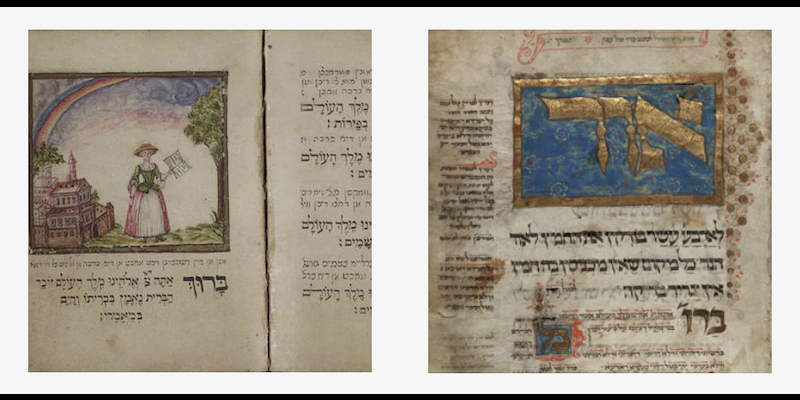The Hebraic Section of the Library of Congress houses some 230 manuscripts written in Hebrew and in cognate languages such as Judeo-Arabic, Judeo-Persian, and Yiddish. It is a highly diverse collection with materials ranging from rabbinic responsa and commentary to poetry, Jewish magic, and folk medicine, and together they offer a rich, often intimate glimpse into Jewish life over the centuries.
Most of the manuscripts entered the library through the collections of Ephraim Deinard, a noted bookdealer from Russia who traveled the world in search of Hebraica.
The collection contains manuscripts from every century of the millennium and just about every corner of the Jewish world. Seventeenth and eighteenth-century Italy is particularly well represented in the collection, with numerous manuscripts on a variety of subjects including wedding poetry in Judeo-Italian and a considerable corpus on Kabbalah.
(Description adapted from information on project website)
Subject Period (epoch)
Topic(s)
Subject Language(s)
Project Language(s)
Project Media
Project Access
Project Status
Project Creator Continent(s)
Project Creator Country(ies)
Project Creator City(ies)


The Hebraic Section of the Library of Congress houses some 230 manuscripts written in Hebrew and in cognate languages such as Judeo-Arabic, Judeo-Persian, and Yiddish. It is a highly diverse collection with materials ranging from rabbinic responsa and commentary to poetry, Jewish magic, and folk medicine, and together they offer a rich, often intimate glimpse into Jewish life over the centuries.
Most of the manuscripts entered the library through the collections of Ephraim Deinard, a noted bookdealer from Russia who traveled the world in search of Hebraica.
The collection contains manuscripts from every century of the millennium and just about every corner of the Jewish world. Seventeenth and eighteenth-century Italy is particularly well represented in the collection, with numerous manuscripts on a variety of subjects including wedding poetry in Judeo-Italian and a considerable corpus on Kabbalah.
(Description adapted from information on project website)
